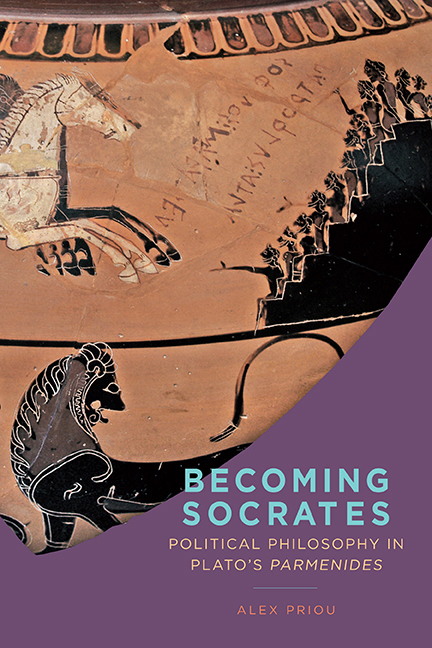4 - The Problem of Socrates
Published online by Cambridge University Press: 15 April 2021
Summary
From the Parmenides we see that Socrates’ uniqueness seems to have resided in his discovery that the ϵἴδη are the ontology implicit in ƛόγος, a discovery that allowed him to resolve the debate between the two dominant schools of pre-Socratic philosophy, the monists and the pluralists. In so doing, Socrates appears all in one stroke to have rescued the reputation of philosophy and justified the use of all of ƛόγος as a means of guidance, be that use everyday or philosophic. Yet as Parmenides has shown, the ϵἴδη themselves are questionable, most pointedly as regards their central premise, the possibility of participation. And while he does not refute this premise, Parmenides does show that although participation is necessary to the guidance of ƛόγος, it can never be anything more than a postulate. By raising problems with our attempt to assess participation, Parmenides shows that ƛόγος cannot ultimately justify its own use, and that there is accordingly a horizon to the human being's attempt to speak meaningfully about the world. By inducing awareness of this horizon, Parmenides is able to guide us to a revised understanding of the ϵἴδη, for awareness of the horizon of ƛόγος leads us to ask why we are initially unaware of this horizon. Why are the ϵἴδη so distracting that we cannot even see that the premise of our use of ƛόγος—that is, the possibility of participation—isn't rationally grounded? What do they promise, that we should be so readily deceived?
Opening up this line of questioning, Parmenides looks to the unity of each ϵἶδος, which unity gives it its precision as this one thing: each is one and nothing but itself, completely separate from all the other ϵἴδη, i.e., unmixed. Such precision is what distinguishes the ϵἴδη from the visible things, in which contraries necessarily and incontrovertibly mix with one another, thus rendering them manifold and varied, leaving our speech about them convoluted and contradictory as a result.
- Type
- Chapter
- Information
- Becoming SocratesPolitical Philosophy in Plato's 'Parmenides', pp. 193 - 206Publisher: Boydell & BrewerPrint publication year: 2018

